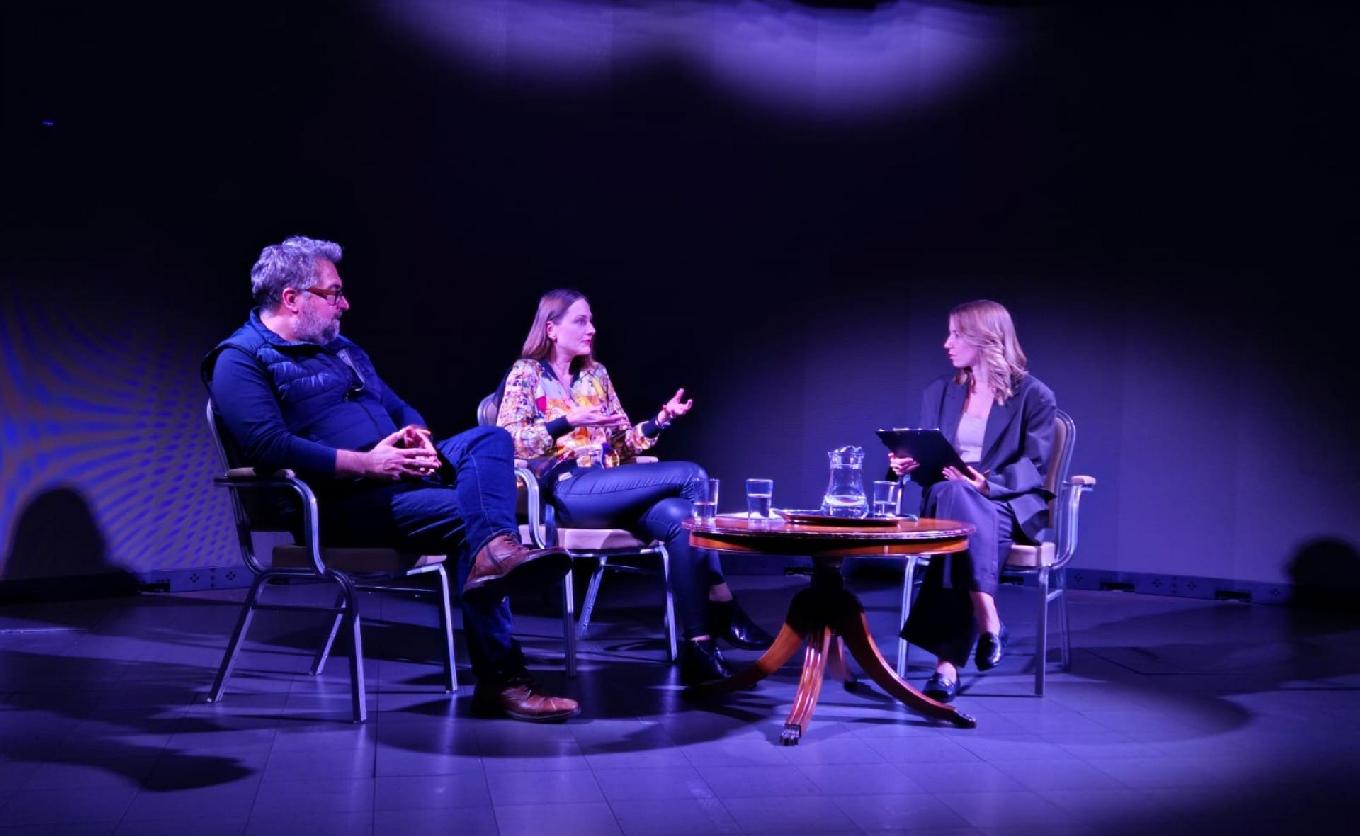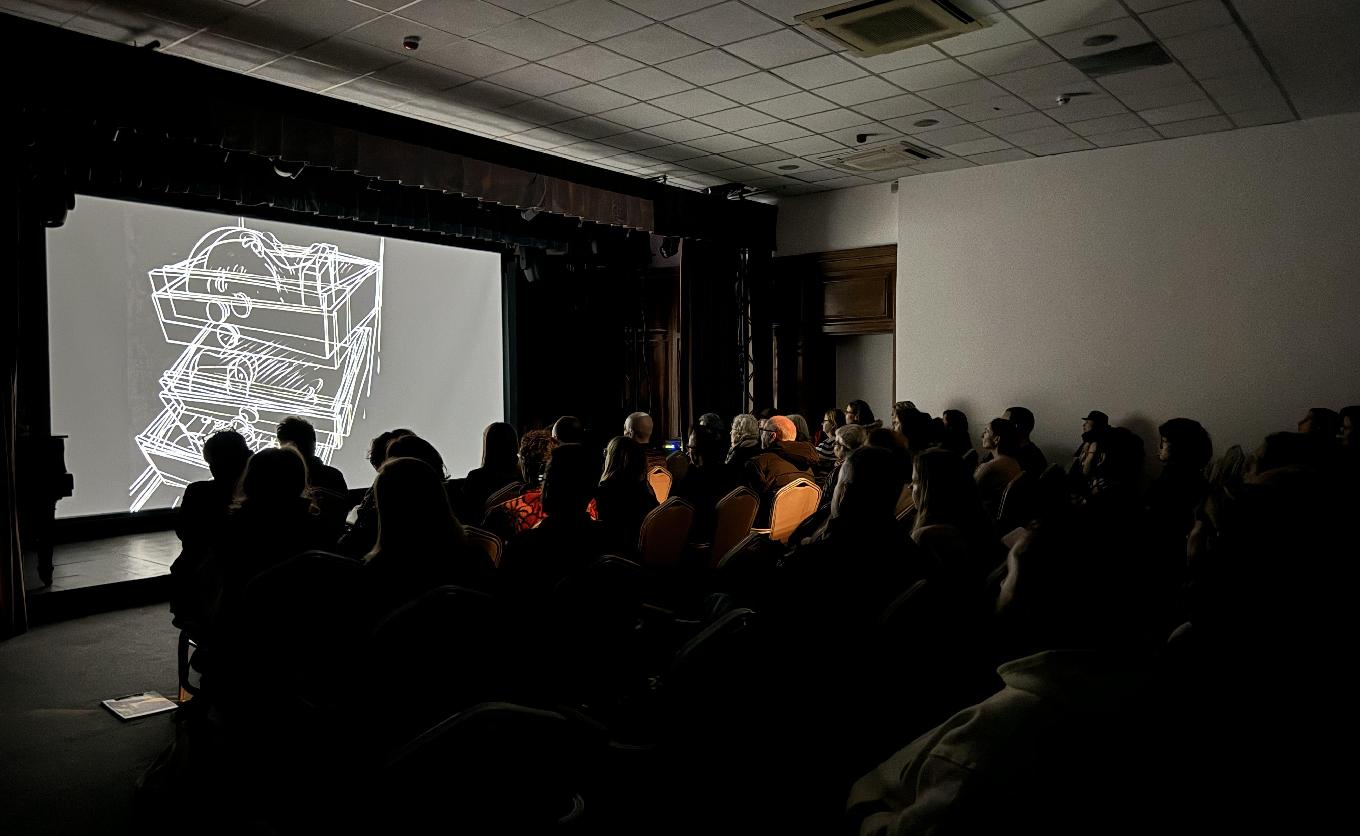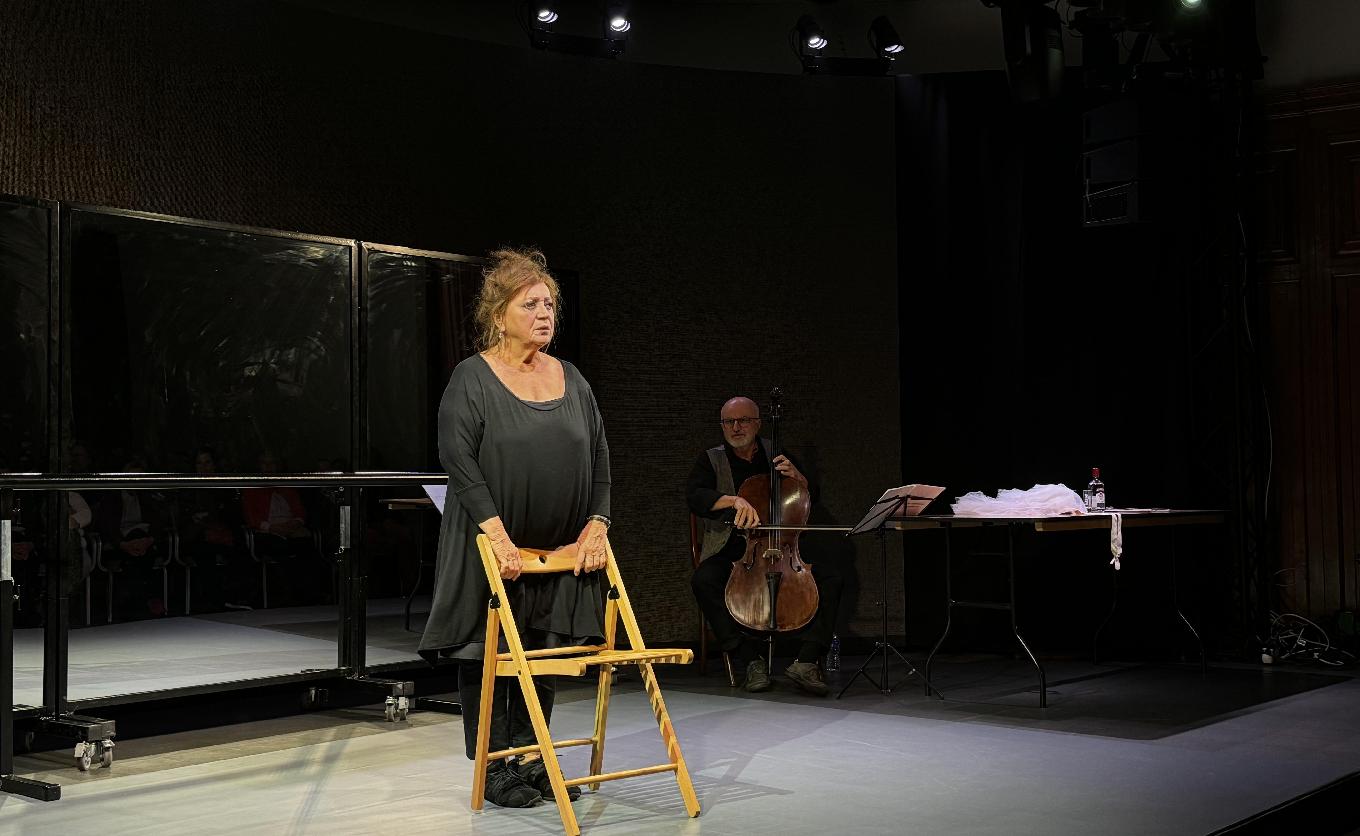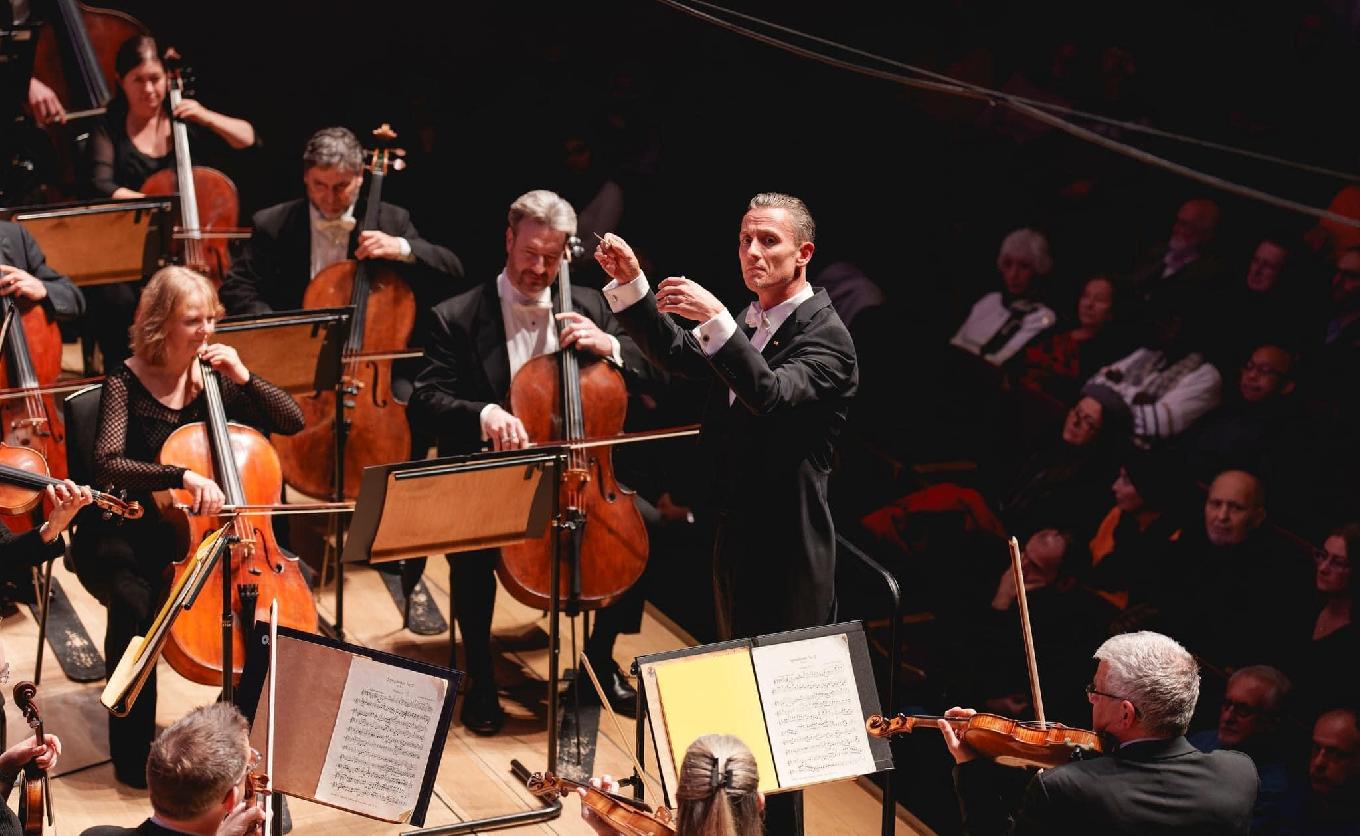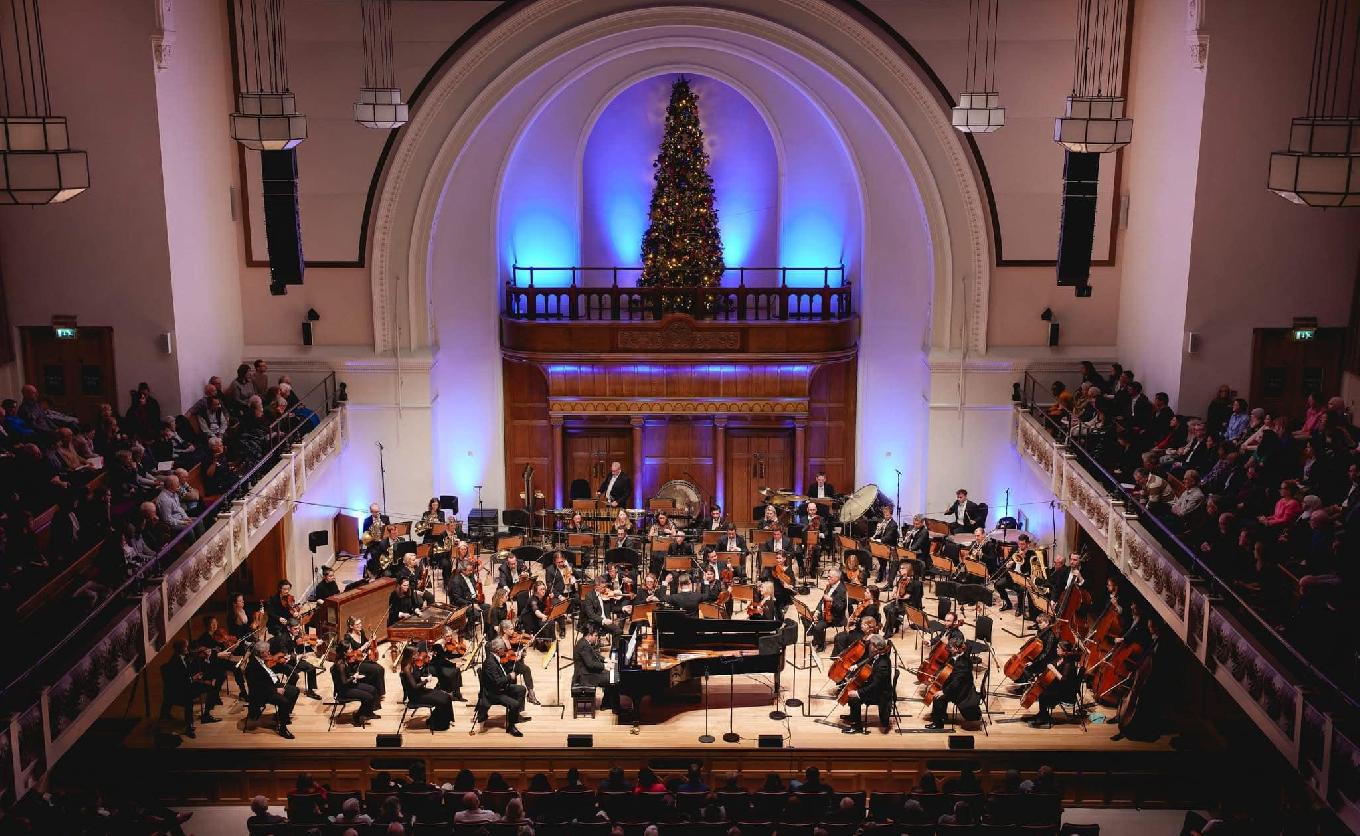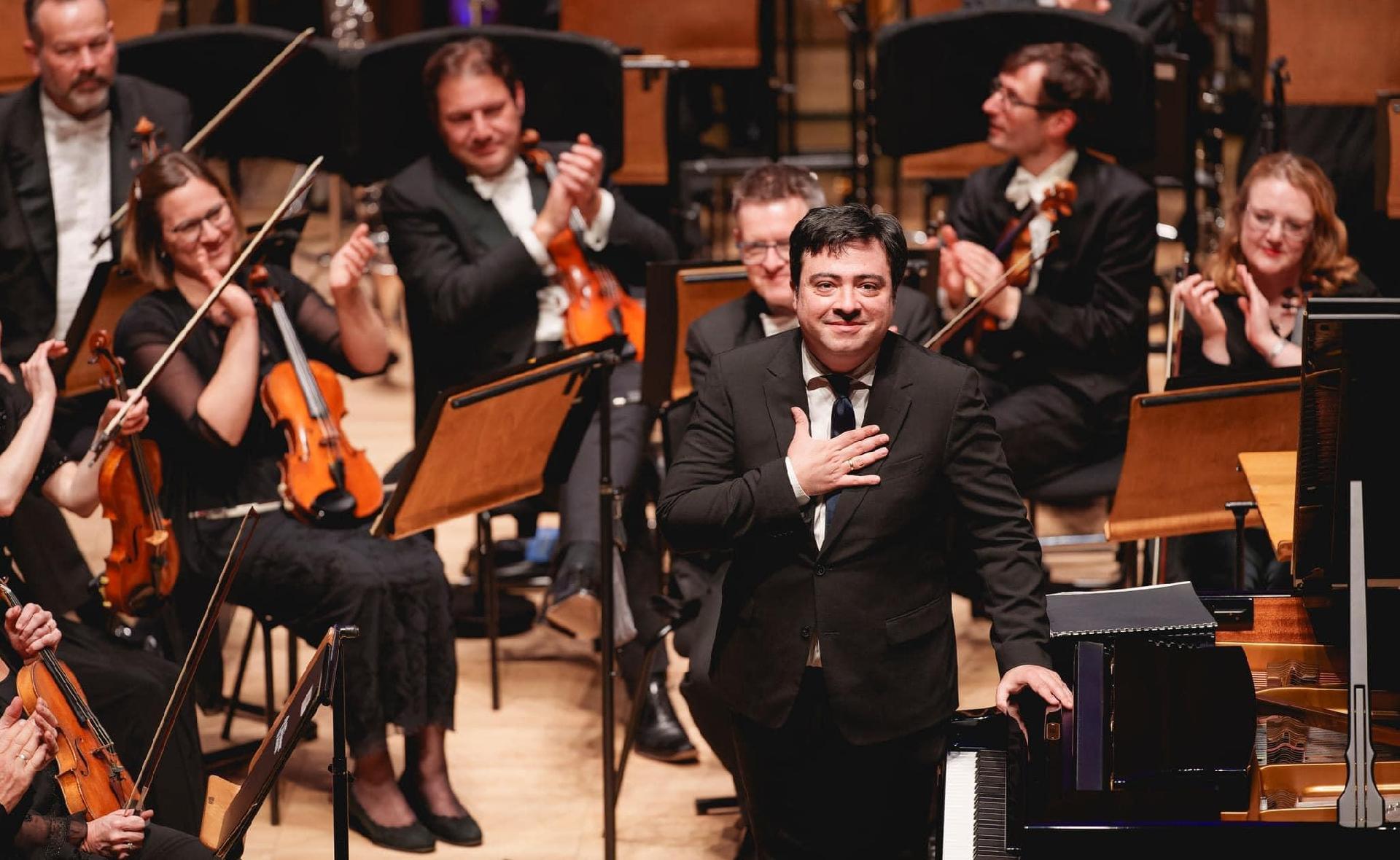
Hungarian Culture Conquers London
The Liszt Institute London is dedicated to promoting Hungarian culture in the United Kingdom. For the first time, the institute's stage hosted Eszter Csákányi's monodrama, “When I Met Baryshnikov”, and celebrated the 110th anniversary of Hungarian animation with an all-day film screening event. The institute also helped organize János Balázs' concert with the Royal Philharmonic Orchestra, one of the UK's most prestigious and successful symphony orchestras, as well as his masterclass and a joint performance with young Hungarian musicians.
With the support of the National Cultural Fund, the Liszt Institute London presented Eszter Csákányi’s “When I Met Baryshnikov” monodrama for the first time outside the Carpathian Basin on November 19. The performance, a solo show by Csákányi, was created in collaboration with Bence Bíró, Johanna Bodor, Eszter Kálmán, Ágnes Lovass, and Tamás Rozs. The play is based on Johanna Bodor’s autobiographical novel “It’s OK, I’ll Understand Someday”. Its protagonist, Henriett Marosán, is a fictional ballet master born in Cluj-Napoca who studied at the State Ballet Institute in Bucharest. She fled to Hungary during the Ceaușescu regime and quickly became a key figure in Hungarian dance and theater. The play conveys the message that even as an older artist, it is essential to stand on stage with dignity. The performance attracted 140 attendees, filling the Liszt Institute's theater to capacity.
In honor of the 110th anniversary of Hungarian animation, the Liszt Institute, in partnership with the National Film Archive and the Kovásznai Research Centre, screened a selection of the most artistically outstanding Hungarian animated short and feature films from the past century. The short film portion presented spectators to the works of Sándor Békési, Marcell Jankovics, Ottó Foky, Dóra Keresztes, István Orosz, and Ferenc Rófusz, with György Ráduly, head of the National Film Archive, explaining the historical relevance of each film. In the evening, György Kovásznai's freshly restored adult animated film, Bubble Bath (1980), was shown in 4K. The restoration was the National Film Archive's showpiece project. György Ráduly and Dorottya Kovásznai, the director of the Kovásznai Research Centre and daughter of György Kovásznai, provided insights into the restoration process and Kovásznai’s pioneering artistic legacy.
On November 28, 2024, János Balázs delivered a spectacular concert with the Royal Philharmonic Orchestra at London’s Cadogan Hall. The Tribute to a Hungarian Legend – Homage to Cziffra production was part of the international program of the Cziffra György Festival. The British audience witnessed the debut of Cziffra Psodia, Péter Eötvös’s only piano concerto, co-written with the recently deceased composer and János Balázs. As an encore, the Kossuth Prize-winning artist performed Franz Liszt’s Hungarian Rhapsody No. 6 - one of the inspirations for Cziffra Psodia - which was met with rapturous applause and cheering from the audience. On this occasion, the Royal Philharmonic Orchestra was conducted by British maestro Alexander Shelley, who provided a profound account of Cziffra’s life, marked by political persecution and hardships, as well as the rich legacy he left for future generations. The program was supported by the Bethlen Gábor Fund Management Company and the Prime Minister’s Office, drawing over 700 attendees. János Balázs held a masterclass at the Guildhall School of Music & Drama the next day, sponsored by the Liszt Institute. Supported by the Hungarian Academy of Arts, Balázs then performed another highly acclaimed concert alongside young Hungarian musical talents, including Barbara Tóth (violin), Julianna Agócs (vocals), and Benjamin Balog (classical guitar). The series of events was a tremendous success in the United Kingdom.

